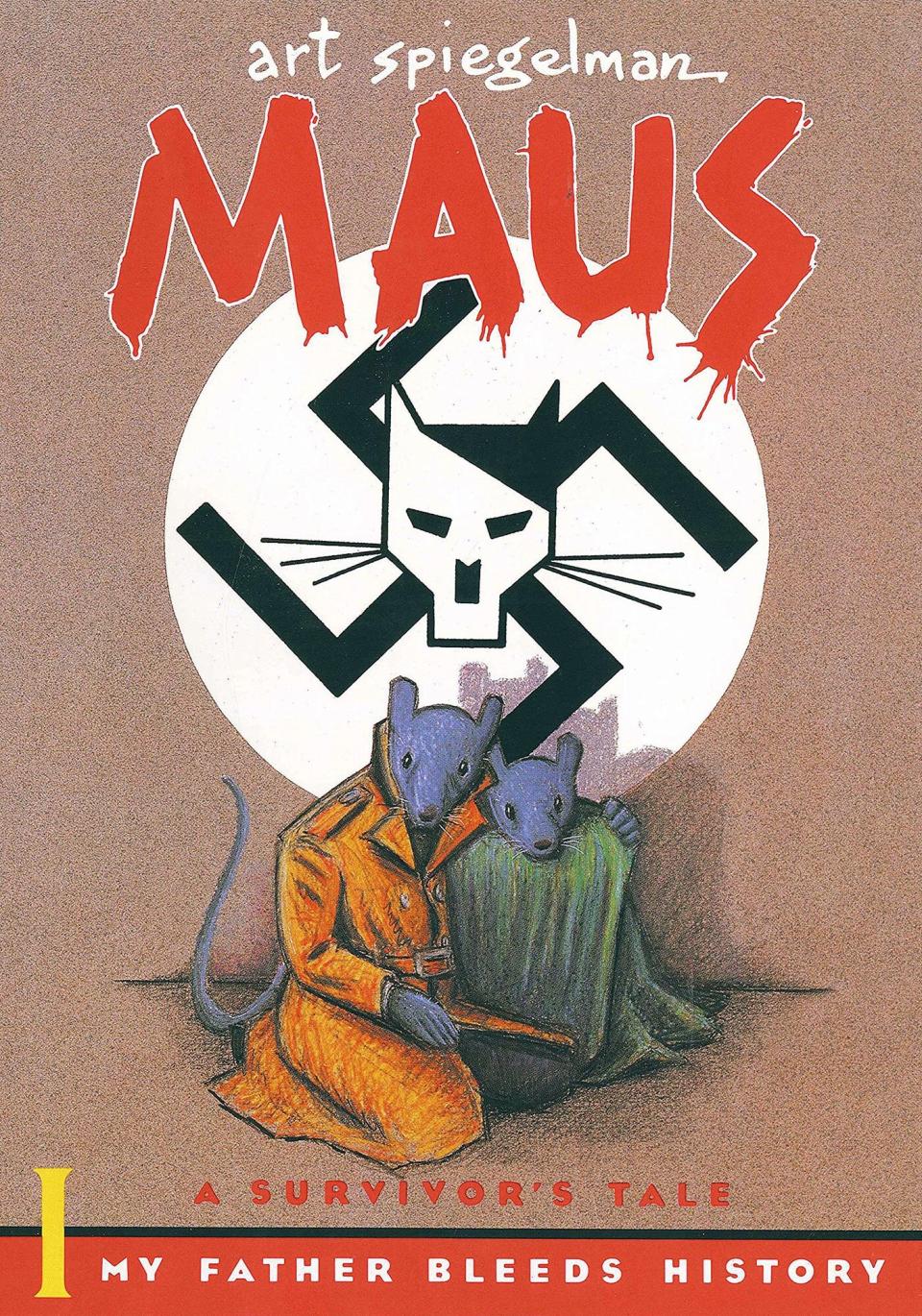Maus creator Art Spiegelman says school distract ban 'has the breath of autocracy and fascism'
- Oops!Something went wrong.Please try again later.
Jan. 27 is known as International Holocaust Remembrance Day, when people around the world commemorate the victims of the genocide that killed millions of Jewish people and other minorities between 1933-1945. The McMinn County Board of Education in Tennessee is marking the occasion in an unusual way: By banning Art Spiegelman's Maus — a graphic novel depiction of the author's father's experiences in the German concentration camps in which Jews are drawn as mice and Nazis as cats — from its eighth-grade language arts curriculum.
The school board meeting that resulted in an unanimous 10-0 vote to ban Maus from the curriculum occurred on Jan. 10 (you can read the full transcript here), but news spread fast on social media this week in advance of International Holocaust Remembrance Day. As the only graphic novel to ever win the Pulitzer Prize, Maus is highly regarded by fellow creators and fans of the form, and no less a figure than The Sandman writer Neil Gaiman tweeted about the affair, "there's only one kind of people who would vote to ban Maus, whatever they are calling themselves these days."
There's only one kind of people who would vote to ban Maus, whatever they are calling themselves these days. https://t.co/fs1Jl62Qd8
— Neil Gaiman (@neilhimself) January 26, 2022
“It has the breath of autocracy and fascism about it... I think of it as a harbinger of things to come.”
-Art Spiegelman, Pulitzer prize-winning author and illustrator of Maus, on a TN school district banning his book pic.twitter.com/C4IA7yQKFA— Nora Neus (@noraneus) January 27, 2022
On a different note, Spiegelman himself appeared on CNN Thursday and pointed out that in the transcript, the school board members' opposition to Maus revolves around profanity (only the word "damn" is cited), nudity (the mouse version of Spiegelman's mother is depicted dying by suicide in the bathtub), and disturbing images (Jewish mice hanging from trees). But this is the Holocaust, after all.
"I've moved past total bafflement to trying to be tolerant of people who may possibly not be Nazis," Spiegelman said. "Having read the transcript of the school board meeting, the problem is sort of bigger and stupider than that. Reading this 20-page document, they're totally focused on some bad words that are in the book. Like damn it, I can't believe that the word 'damn' would get the book jettisoned out of school on its own, but that's where the genuine focus appears to be. There wasn't any hint of, 'well the author might be Jewish, we don't want Jewish books in our schools.' It's not like that exactly. So I'm trying to wrap my brain around it."
Spiegelman continued, "I think they're so myopic in their focus, and they're so afraid of what's implied in having to defend the decision to teach Maus as part of the curriculum that it led to this daffily myopic response. Daffiness would be easy, the problem of course is that it has the breath of autocracy and fascism about it, and it has a real problem with asking the parents to decide what's okay to teach kids."

Pantheon The cover of the first volume of 'Maus' by Art Spiegelman.
As shown in the transcript, McMinn County teachers tried their best to explain to the school board the value they found in teaching Maus, and furthermore that they had built their curriculum around it such that removing the book unraveled their whole lesson plan for the year.
"Every lesson we teach gives us a chance to make a change for the better for our students," instructional supervisor Steven Brady said in the transcript. "When we teach habits of character, we are teaching our students how to be better people. There was a time where that happened every day at home, but when we think about what's going on now and in the lives our students live in, many of them live in broken homes when they are at one house one day and another house the next. The list goes on and on of the things they have to deal with. Whether we realize it or not, school is the most stable thing in many of our students lives. What students see and hear where they live, may not be appropriate in some settings and we have a chance with every lesson to change what our students see is ok. We get a chance to kind of influence their ethics, their morals, their upbringing."
One school board member objected to this, saying that "a lot of the cussing had to do with the son cussing out the father, so I don't really know how that teaches our kids any kind of ethical stuff."
In a 1998 interview with EW timed to the release of Maus II: And Here My Troubles Began (the comic was originally published in two volumes five years apart, though can now often be found as a single collection), Spiegelman discussed his complicated relationship with his late father Vladek, which is as much the subject of Maus as Vladek's survival of the Holocaust.
"My relationship with my father as an adult consisted of interviewer and interviewee. We were at a permanent impasse and I came as close as I could," Spiegelman told EW then. Later in the interview, he added, "although not everybody had parents who went through the Holocaust, everybody had parents. This book is about me as a child of survivors."
Various comics professionals, like California comic store owner Ryan Higgins and Strange Adventures artist Mitch Gerads, have offered to donate copies of Maus to anyone in McMinn County who wants one in wake of the ban. The first volume of Maus is currently listed as a "best seller" on Amazon.
Related content:

